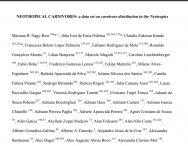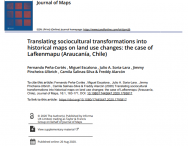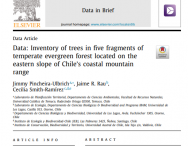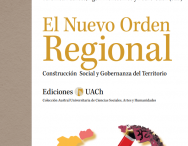NEOTROPICAL ALIEN MAMMALS: a data set of occurrence and abundance of alien mammals in the Neotropics
Detalles del proyecto
Categoria
2020Publicaciones
Author
Alves Da Rosa C.... J Pincheira-Ulbrich.... et alDescripcion del proyecto
Biological invasion is one of the main threats to native biodiversity. For a species to become invasive it must be voluntarily or involuntarily introduced by humans into a non-native habitat. Mammals were among first taxa to be introduced worldwide for game, meat and labor, yet the number of species introduced in the Neotropics remains unknown. In this data set, we make available occurrence and abundance data on mammal species that (1) transposed a geographical barrier and (2) were voluntarily or involuntarily introduced by humans into the Neotropics. Our data set is composed of 73,738 historical and current georeferenced records on alien mammal species of which around 96% correspond to occurrence data on 77 species belonging to eight orders and 26 families. Data cover 26 continental countries in the Neotropics, ranging from Mexico and its frontier regions (southern Florida and coastal-central Florida in southeast USA) to Argentina, Paraguay, Chile, and Uruguay, and the 13 countries of Caribbean islands. Our data set also includes neotropical species (e.g., Callithrix sp., Myocastor coypus, Nasua nasua) considered alien in particular areas of Neotropics. The most numerous species in terms of records are from Bos sp. (n = 37,782), Sus scrofa (n = 6,730), and Canis familiaris (n = 10,084); 17 species were represented by only one record (e.g. Syncerus caffer, Cervus timorensis, Cervus unicolor, Canis latrans). Primates have the highest number of species in the data set (n = 20 species), partly due to uncertainties regarding taxonomic identification of the genera Callithrix, which includes the species C. aurita, C. flaviceps, C. geoffroyi, C. jacchus, C. kuhlii, C. penicillata, and their hybrids. This unique data set will be a valuable source of information on invasion risk assessments, biodiversity redistribution and conservation-related research. There are no copyright restrictions. Please cite this data paper when use the data in publications. We also request that researchers and teachers inform us on how they are using the data











